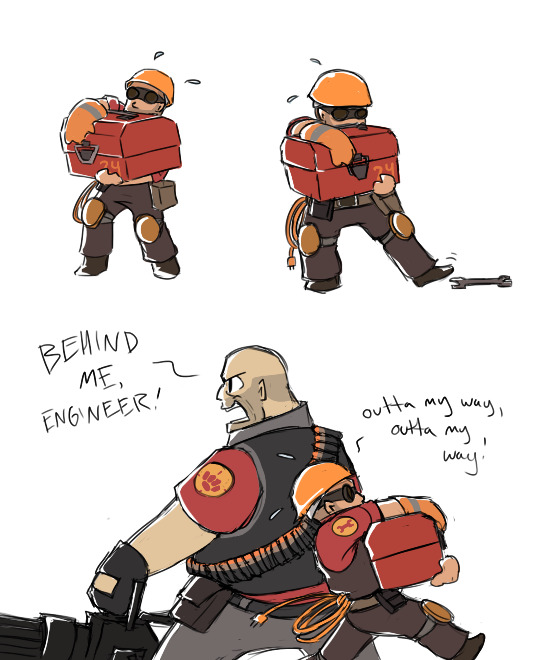#engine protection
Explore tagged Tumblr posts
Text

1 note
·
View note
Text
What Kind of Oil Does a Mercedes Use?
When it comes to maintaining a high-performance vehicle like a Mercedes-Benz, using the right engine oil is essential. Mercedes engines are built with precision, and only specific types of motor oil meet their standards. Here’s a quick guide to help you understand what kind of oil your Mercedes needs.
Recommended Oil Type for Mercedes
Mercedes-Benz generally recommends full synthetic motor oil for its vehicles. Most modern models require SAE 0W-40 or 5W-40 synthetic oil, which offers excellent protection in a wide range of temperatures and driving conditions.
Mercedes Oil Specifications
To ensure maximum performance and longevity, Mercedes requires oils that meet specific standards like:
Always check your owner's manual or consult a certified Mercedes technician to confirm the exact oil spec for your model.
Why Use the Best Synthetic Motor Oil?
Using the best synthetic motor oil helps keep your Mercedes engine running smoother and cleaner. It reduces friction, improves fuel economy, and extends engine life—especially under extreme temperatures or heavy driving conditions.
Choosing the best synthetic motor oil that meets Mercedes standards also helps maintain warranty coverage and overall vehicle value.
Final Thoughts
Mercedes vehicles are built to perform, and using the right oil is key to keeping them that way. Stick with high-quality, approved synthetic oils, and your engine will reward you with years of reliable service.
#Mercedes Oil Type#Synthetic Motor Oil#Best Synthetic Motor Oil#Mercedes Maintenance#Engine Oil Guide#Car Care Tips#Mercedes Service#Luxury Car Maintenance#Vehicle Performance#Engine Protection#Car Oil Advice#Mercedes-Benz Tips
0 notes
Text
Save On Protection Essentials With R&G’s Summer Sale

With the summer finally arriving and bike season underway, R&G is offering riders the chance to enjoy some big savings this June with 15% off essential crash protection products! #Aftermarket #IndustryNews #LatestNews #RandG #CrashProtection #EngineProtection #MotorcycleAftermarket #MotorcycleNews #RG
0 notes
Text
Following an accident, Danny wakes up in Gotham City in a DC universe. Lacking any forms of ID or possessions beyond the clothes on his back, he’s forced to commit some crimes to survive. Minor crimes, but still.
And then he gets caught.
During the court proceedings, they come to the mistaken conclusion that he’s a Meta suffering from some psychiatric issues such as Cotard’s Syndrome (a real rare condition where a person holds the delusional belief that they’re dead/don’t exist/etc).
Thus, between his “need for mental treatment” and the concerns about housing someone with his unique physical traits, he is sentenced to spend time in Arkham Asylum. He’s under pretty low security aside from the anti-Meta stuff and has more freedoms than some other inmates, but it’s still not a great experience. Even at the best of times, Arkham is hardly a nice place.
Some of his fellow residents are decently chill all things considered, but lots very much aren’t.
#dp x dc#dpxdc#dc x dp#dcxdp#danny phantom x dc#danny phantom x dc crossover#danny fenton in gotham city#just gonna slightly sidestep any questions about how the containment systems work or why “genuinely a ghost” is so unbelievable#i wanted to put Danny in Arkham so for whatever reason It Just Works#maybe danny had a bit of anti-ghost tech with him that they reverse engineered#or maybe something already existing in DC works#and as for the “dead” part… maybe his halfa/Realms nature is too unique so they assume he must be wrong about being ghostly? idk#also i think this’d be a good opportunity for a dpxdc fic to explore non-woobified versions of the rogues#like. where they aren’t watered down to be completely chill and barely criminals#e.g. yeah Poison Ivy cares for the environment and has protected kids but she’s still a terrorist who’s killed and mind controlled people#Or Killer Croc who is very much a victim of abuse/hate for his appearance but has also still attacked people and engaged in cannibalism#They’re not complete monsters but they’re not wholly innocent either#The story idea takes place in a mental hospital for (mostly) criminals! Let them have done genuinely bad things even if they’re improving!
1K notes
·
View notes
Text

The Crew is boisterous and loud, full of traitors, inside jokes, and secrets. The scum of the Fire Nation. The forgotten tiles on the Empire's Pai Sho board. The ones who change the game.
But most importantly—they're a family. And no matter how much they complain about their boss (teenage menace that he is), they'll do anything for their Prince.
Anything.
.
The Crew is the heart and soul of my fic For the Spirits. No one really knows just how important they will be to the story...how important they already are.
#atla#avatar the last airbender#zuko#atla fanart#prince zuko#atla art#new gods au#for the spirits#the crew#zuko's crew#atla fanfic#atla fic#atla au#spirit touched zuko#lieutenant jee#Royal Guard Ming#Ensign Yoi#Captain Yume#Helmsman Taku#Chief Engineer On Zhe#Healer Oyoshi#Chef Bao#atla oc#Ming is the glorious lady yelling POUTY POUT POUT. She's fun and protective and a terrible liar.#She could also break boulders without even using firebending. Just so you know. (It's incredibly easy to underestimate her though)#Next to her is her bff; soulmate; and the Crew's resident James Potter—our very own Yoi.#The intense old lady is Yume. She has known Iroh for most of their lives and served alongside him in Ba Sing Se. Do NOT mess with her.#The blushing mess? That's Taku. He's aware of everything that goes on in the Wani. EVERYTHING. And he has a crush on Yume. Who wouldn't?#Talking about love. Our resident couple are On Zhe and Oyoshi. On Zhe is a sickly and shy genius. Oyoshi is a strict and no-nonsense healer.#And lastly we have Chef Bao! He doesn't appear very often and we know little about him. The Crew likes to come up with backstories for him.
1K notes
·
View notes
Text

#airsoft#pewlife#hearing protection#engineering#industrial#heavy metal#tech#industrial design#product design#girls with guns#guns and ammo#guns are cool#second amendment#2nd amendment#2a#self defense#fun gun#paintball#gear#design#art exhibition#artists on tumblr#2nd
178 notes
·
View notes
Text
I had tears pouring down my cheeks while I was driving home this morning because I listened to a podcast about the Radium Girls and how hard they fought to hold their employer to account for poisoning them, even though they knew they would die regardless, because they wanted to protect the workers who came after them. Even though their community called them liars and they were in horrible pain, they fought. And then the host started talking about how the Manhattan Project used knowledge gained from the Radium Girls to protect their workers and how the ghosts of those girls and women protected people going forward...
And it made me think of all the ghosts, unnamed and unknown, who in their death protect us: the ghosts of the Titanic, the Triangle Shirtwaist Factory fire, the Quebec Bridge, and so many others. Disasters that made us change laws and protect people, not just because they were horrific but because survivors and survivors families demanded that we change; kept screaming and fighting and pushing until someone listened and something was fixed.
What a debt we owe.
#the ghosts that protect us#the radium girls#cautionary tales#not jane austen#i don't know how to tag this#the Quebec Bridge was a Canadian diaster and because of it our engineers wear iron rings on their pinky#to remind them of what messing up can cost
976 notes
·
View notes
Text
Reverse engineers bust sleazy gig work platform

If you'd like an essay-formatted version of this post to read or share, here's a link to it on pluralistic.net, my surveillance-free, ad-free, tracker-free blog:
https://pluralistic.net/2024/11/23/hack-the-class-war/#robo-boss

A COMPUTER CAN NEVER BE HELD ACCOUNTABLE
THEREFORE A COMPUTER MUST NEVER MAKE A MANAGEMENT DECISION
Supposedly, these lines were included in a 1979 internal presentation at IBM; screenshots of them routinely go viral:
https://twitter.com/SwiftOnSecurity/status/1385565737167724545?lang=en
The reason for their newfound popularity is obvious: the rise and rise of algorithmic management tools, in which your boss is an app. That IBM slide is right: turning an app into your boss allows your actual boss to create an "accountability sink" in which there is no obvious way to blame a human or even a company for your maltreatment:
https://profilebooks.com/work/the-unaccountability-machine/
App-based management-by-bossware treats the bug identified by the unknown author of that IBM slide into a feature. When an app is your boss, it can force you to scab:
https://pluralistic.net/2023/07/30/computer-says-scab/#instawork
Or it can steal your wages:
https://pluralistic.net/2023/04/12/algorithmic-wage-discrimination/#fishers-of-men
But tech giveth and tech taketh away. Digital technology is infinitely flexible: the program that spies on you can be defeated by another program that defeats spying. Every time your algorithmic boss hacks you, you can hack your boss back:
https://pluralistic.net/2022/12/02/not-what-it-does/#who-it-does-it-to
Technologists and labor organizers need one another. Even the most precarious and abused workers can team up with hackers to disenshittify their robo-bosses:
https://pluralistic.net/2021/07/08/tuyul-apps/#gojek
For every abuse technology brings to the workplace, there is a liberating use of technology that workers unleash by seizing the means of computation:
https://pluralistic.net/2024/01/13/solidarity-forever/#tech-unions
One tech-savvy group on the cutting edge of dismantling the Torment Nexus is Algorithms Exposed, a tiny, scrappy group of EU hacker/academics who recruit volunteers to reverse engineer and modify the algorithms that rule our lives as workers and as customers:
https://pluralistic.net/2022/12/10/e2e/#the-censors-pen
Algorithms Exposed have an admirable supply of seemingly boundless energy. Every time I check in with them, I learn that they've spun out yet another special-purpose subgroup. Today, I learned about Reversing Works, a hacking team that reverse engineers gig work apps, revealing corporate wrongdoing that leads to multimillion euro fines for especially sleazy companies.
One such company is Foodinho, an Italian subsidiary of the Spanish food delivery company Glovo. Foodinho/Glovo has been in the crosshairs of Italian labor enforcers since before the pandemic, racking up millions in fines – first for failing to file the proper privacy paperwork disclosing the nature of the data processing in the app that Foodinho riders use to book jobs. Then, after the Italian data commission investigated Foodinho, the company attracted new, much larger fines for its out-of-control surveillance conduct.
As all of this was underway, Reversing Works was conducting its own research into Glovo/Foodinho's app, running it on a simulated Android handset inside a PC so they could peer into app's data collection and processing. They discovered a nightmarish world of pervasive, illegal worker surveillance, and published their findings a year ago in November, 2023:
https://www.etui.org/sites/default/files/2023-10/Exercising%20workers%20rights%20in%20algorithmic%20management%20systems_Lessons%20learned%20from%20the%20Glovo-Foodinho%20digital%20labour%20platform%20case_2023.pdf
That report reveals all kinds of extremely illegal behavior. Glovo/Foodinho makes its riders' data accessible across national borders, so Glovo managers outside of Italy can access fine-grained surveillance information and sensitive personal information – a major data protection no-no.
Worse, Glovo's app embeds trackers from a huge number of other tech platforms (for chat, analytics, and more), making it impossible for the company to account for all the ways that its riders' data is collected – again, a requirement under Italian and EU data protection law.
All this data collection continues even when riders have clocked out for the day – its as though your boss followed you home after quitting time and spied on you.
The research also revealed evidence of a secretive worker scoring system that ranked workers based on undisclosed criteria and reserved the best jobs for workers with high scores. This kind of thing is pervasive in algorithmic management, from gig work to Youtube and Tiktok, where performers' videos are routinely suppressed because they crossed some undisclosed line. When an app is your boss, your every paycheck is docked because you violated a policy you're not allowed to know about, because if you knew why your boss was giving you shitty jobs, or refusing to show the video you spent thousands of dollars making to the subscribers who asked to see it, then maybe you could figure out how to keep your boss from detecting your rulebreaking next time.
All this data-collection and processing is bad enough, but what makes it all a thousand times worse is Glovo's data retention policy – they're storing this data on their workers for four years after the worker leaves their employ. That means that mountains of sensitive, potentially ruinous data on gig workers is just lying around, waiting to be stolen by the next hacker that breaks into the company's servers.
Reversing Works's report made quite a splash. A year after its publication, the Italian data protection agency fined Glovo another 5 million euros and ordered them to cut this shit out:
https://reversing.works/posts/2024/11/press-release-reversing.works-investigation-exposes-glovos-data-privacy-violations-marking-a-milestone-for-worker-rights-and-technology-accountability/
As the report points out, Italy is extremely well set up to defend workers' rights from this kind of bossware abuse. Not only do Italian enforcers have all the privacy tools created by the GDPR, the EU's flagship privacy regulation – they also have the benefit of Italy's 1970 Workers' Statute. The Workers Statute is a visionary piece of legislation that protects workers from automated management practices. Combined with later privacy regulation, it gave Italy's data regulators sweeping powers to defend Italian workers, like Glovo's riders.
Italy is also a leader in recognizing gig workers as de facto employees, despite the tissue-thin pretense that adding an app to your employment means that you aren't entitled to any labor protections. In the case of Glovo, the fine-grained surveillance and reputation scoring were deemed proof that Glovo was employer to its riders.
Reversing Works' report is a fascinating read, especially the sections detailing how the researchers recruited a Glovo rider who allowed them to log in to Glovo's platform on their account.
As Reversing Works points out, this bottom-up approach – where apps are subjected to technical analysis – has real potential for labor organizations seeking to protect workers. Their report established multiple grounds on which a union could seek to hold an abusive employer to account.
But this bottom-up approach also holds out the potential for developing direct-action tools that let workers flex their power, by modifying apps, or coordinating their actions to wring concessions out of their bosses.
After all, the whole reason for the gig economy is to slash wage-bills, by transforming workers into contractors, and by eliminating managers in favor of algorithms. This leaves companies extremely vulnerable, because when workers come together to exercise power, their employer can't rely on middle managers to pressure workers, deal with irate customers, or step in to fill the gap themselves:
https://projects.itforchange.net/state-of-big-tech/changing-dynamics-of-labor-and-capital/
Only by seizing the means of computation, workers and organized labor can turn the tables on bossware – both by directly altering the conditions of their employment, and by producing the evidence and tools that regulators can use to force employers to make those alterations permanent.

Image: EFF (modified) https://www.eff.org/files/issues/eu-flag-11_1.png
CC BY 3.0 http://creativecommons.org/licenses/by/3.0/us/
#pluralistic#etui#glovo#foodinho#alogrithms exposed#reverse engineering#platform work directive#eu#data protection#algorithmic management#gdpr#privacy#labor#union busting#tracking exposed#reversing works#adversarial interoperability#comcom#bossware
352 notes
·
View notes
Photo

Engineer’s the shortest of the team and he looks even shorter in-game since he’s always hunched over with his wrench, but I think he looks the tiniest when he’s carrying his stuff, haha. Little guys scurrying around...
[patreon]
#team fortress 2#heavy#engineer#z art#busy engiebees in their nests#i protected some engies setting up lately as a heavy#heavy must protect team#'heavy is too big/engie is too small' lies this is 100% accurate
2K notes
·
View notes
Text

electra trying to convince pearl to race with him
no explanation needed just know this will be in your nightmares and it’s all @dove-bunny-love fault for giving me the idea (also Jeffrey Daniel is a cute lil stinker :3)
#starlight express#stex#electra the electric engine#shitpost#electra#i should be working on asks#nightmare fuel#wtf even is this#jeffrey daniel#olc starlight express#olc stex#please protect them they are an endangered species
126 notes
·
View notes
Text

1 note
·
View note
Text
With a grunt they come to a stop at some sort of solid surface imbedded into the hill. Hydra groans and lays flat on their back, looking up at the overcast sky. His vision needs a moment to catch up and recalibrate back into one point of focus.
What a fucking great birthday this has been turning out to be, eh?
Slowly, Hydra sits up and rubs at their aching joints. Their neck needs to be looked at and he is in need of a good shower when he gets back to his shed. Probably a good dusting of his current gear. That would be a good way to end today. Getting a nice warm bath and snuggling up into bed with some comfortable clothes…
That trail of thought ends as he finishes turning around to stare at the object jutting out of the face of the hill.
A distorted face stares back at him. Eaten away synthetic skin and broken eyes revealing a faceless train.
“WOAH- ACK!” Hydra begins to scream but tumbles backwards on their butt. They fall over onto their back with a surprised ‘oof!’
They quickly find their bearings and scramble away from the scrapped train. His breathing hitches as he stares from a safe distance.

A faceless train with corroded and dirty armor and exposed inner workings sits calmly with much of their chest and legs embedded into the dirt. Its jaw is missing a screw and wide open. Sharp triangle locomotive teeth in need of a good shine and sharpening. Hair mattered and chewed up by local pests. Grass, vines, and other plant life twisting atop of what remained of their clothes and armor.
Hydra looks down at the train’s legs and notices more pieces of the train half-buried in the earth. Wires, bolts, nuts, steel, iron, chunks, cloth…
A racing helmet.
Tentatively, the hydrogen tanker crawls towards the rusted helmet. He wipes away at some grime and dirt to reveal the train’s numbers: 2-6-4
A shaky breath escapes him. Steam locomotive wheels in his head churn like gears in his head.
Oh.
He brushes more dirt and crust off of the helmet. It’s burnt here and there with rusting but it’s a clear replica of a steam locomotive.
Now he sits on his knees and holds the helmet in disbelief. Hydra’s eyes drift back towards the decaying train. A racer. A steam locomotive.
Oh.
[From the fan writing 'Another Believer' by AlmondCakeFrosting. Only viewable with an AO3 account.]
#mvf art#stex fic another believer#mvf writing#rusty the steam engine#hydra the hydrogen tanker#hydra the hydrogen truck#stex rusty#stex hydra#starlight express#stex#stex revival#tendersteam#hydrosteam#consider this a test for posting my writing stuff since. ya know. my account is locked for protection#final chapter's coming soon so i wanted to finish this drawing#horror/#eyes/#traditional art
57 notes
·
View notes
Text
Vital protection for Honda's innovative E-Clutch now available

Honda's innovative E-Clutch system has received great acclaim from the press and owners alike with sales of automatic or clutch-less motorcycles proving increasingly popular despite the extra initial purchase cost. #Aftermarket #GBRacing #IndustryNews #LatestNews #EClutch #EngineProtection #GBRacing #HondaCB650R #MotorcycleAftermarket #MotorcycleNews
0 notes
Text
On the 35th anniversary of The École Polytechnique massacre never forget the 14 women who were killed for being women in science
The École Polytechnique massacre (French: tuerie de l'École polytechnique), also known as the Montreal massacre, was an antifeminist mass shooting that occurred on December 6, 1989 at the École Polytechnique de Montréal in Montreal, Quebec. Fourteen women were murdered; another ten women and four men were injured.
Perpetrator Marc Lépine, armed with a legally obtained Ruger Mini-14 semi-automatic rifle and hunting knife, entered a mechanical engineering class at the École Polytechnique. He ordered the women to one side of the classroom, and instructed the men to leave. After claiming that he was "fighting feminism", he shot all nine women in the room, killing six. The shooter then moved through corridors, the cafeteria, and another classroom, specifically targeting women, for just under 20 minutes. He killed eight more women before ending his own life. In total, 14 women were killed, and 14 others were injured.
The massacre is now widely regarded as an anti-feminist attack and representative of wider societal violence against women; the anniversary of the massacre is commemorated as the National Day of Remembrance and Action on Violence Against Women. After the attack, Canadians debated various interpretations of the events, their significance, and the shooter's motives. Other interpretations emphasized the shooter's abuse as a child or suggested that the massacre was the isolated act of a madman, unrelated to larger social issues
The incident led to more stringent gun control laws in Canada, and increased action to end violence against women. It also resulted in changes in emergency services protocols to shootings, including immediate, active intervention by police. These changes were later credited with minimizing casualties during incidents in Montreal and elsewhere. The massacre remained the deadliest mass shooting in Canada until the 2020 Nova Scotia attacks over 30 years later.[4]
Contents
Timeline
Sometime after 4 p.m. on December 6, 1989, Marc Lépine arrived at the building housing the École Polytechnique, an engineering school affiliated with the Université de Montréal, armed with a Ruger Mini-14 rifle and a hunting knife.[5] He had purchased the gun less than a month earlier on November 21 in a Checkmate Sports store in Montreal. He had told the clerk that he was going to use it to hunt small game.[6] He had been in and around the École Polytechnique building at least seven times in the weeks leading up to December 6.[5]
The perpetrator first sat in the office of the registrar on the second floor for a while, where he was seen rummaging through a plastic bag. He did not speak to anyone, even when a staff member asked if she could help him.[2] He then left the office and was seen in other parts of the building before entering a second-floor mechanical engineering class of about sixty students at about 5:10 p.m.[7] After approaching the student giving a presentation, he asked everyone to stop everything and ordered the women and men to opposite sides of the classroom. No one moved at first, believing it to be a joke until he fired a shot into the ceiling.[8][9]
Lépine then separated the nine women from the approximately fifty men and ordered the men to leave.[10][9] He asked the women whether they knew why they were there; instead of replying, a student asked who he was. He answered that he was fighting feminism.[9][11] One of the students, Nathalie Provost, protested that they were women studying engineering, not feminists fighting against men or marching to prove that they were better. He responded by opening fire on the students from left to right, killing six—Hélène Colgan, Nathalie Croteau, Barbara Daigneault, Anne-Marie Lemay, Sonia Pelletier, and Annie St-Arneault—and wounding three others, including Provost.[9][11] Before leaving the room, he wrote the word "shit" twice on a student project.[10]
The gunman continued into the second-floor corridor and wounded three students before entering another room where he twice attempted to shoot a female student. When his weapon failed to fire, he entered the emergency staircase where he was seen reloading his gun. He returned to the room he had just left, but the students had locked the door; he failed to unlock it with three shots fired into the door. Moving along the corridor, he shot at others, wounding one, before moving towards the financial services office, where he shot and killed Maryse Laganière through the window of the door she had just locked.[12][11]
The perpetrator next went down to the first-floor cafeteria, in which about 100 people were gathered. He shot nursing student Barbara Maria Klucznick near the kitchens and wounded another student, and the crowd scattered. Entering an unlocked storage area at the end of the cafeteria, the gunman shot and killed Anne-Marie Edward and Geneviève Bergeron, who were hiding there. He told a male and female student to come out from under a table; they complied and were not shot.[13]: 30 [11]
The shooter then walked up an escalator to the third floor where he shot and wounded one female and two male students in the corridor. He entered another classroom and told the men to "get out", shooting and wounding Maryse Leclair, who was standing on the low platform at the front of the classroom, giving a presentation.[13]: 26–27 He fired on students in the front row and then killed Maud Haviernick and Michèle Richard who were trying to escape the room, while other students dived under their desks.[11][13]: 30–31 The killer moved towards some of the female students, wounding three of them and killing Annie Turcotte. He changed the magazine in his weapon and moved to the front of the class, shooting in all directions. At this point, the wounded Leclair asked for help; the gunman unsheathed his hunting knife and stabbed her three times, killing her. He took off his cap, wrapped his coat around his rifle, exclaimed, "Oh shit", and then killed himself with a shot to the head, 20 minutes after having begun his attack.[14][13]: 31–32 About 60 unfired cartridges remained in the boxes he carried with him.[14][13]: 26–27
After briefing reporters outside, Montreal Police director of public relations Pierre Leclair entered the building and found his daughter Maryse's stabbed body.[15][16]
The Quebec and Montreal governments declared three days of mourning.[15] A joint funeral for nine of the women was held at Notre-Dame Basilica on December 11, 1989, and was attended by Governor General Jeanne Sauvé, Prime Minister Brian Mulroney, Quebec premier Robert Bourassa, and Montreal mayor Jean Doré, along with thousands of other mourners.
The Victims
Geneviève Bergeron (born 1968), civil engineering student
Hélène Colgan (born 1966), mechanical engineering student
Nathalie Croteau (born 1966), mechanical engineering student
Barbara Daigneault (born 1967), mechanical engineering student
Anne-Marie Edward (born 1968), chemical engineering student
Maud Haviernick (born 1960), materials engineering student
Maryse Laganière (born 1964), budget clerk in the École Polytechnique's finance department
Maryse Leclair (born 1966), materials engineering student
Anne-Marie Lemay (born 1967), mechanical engineering student
Sonia Pelletier (born 1961), mechanical engineering student
Michèle Richard (born 1968), materials engineering student
Annie St-Arneault (born 1966), mechanical engineering student
Annie Turcotte (born 1969), materials engineering student
Barbara Klucznik-Widajewicz (born 1958), nursing student
#December 6 1989#The École Polytechnique massacre (French: tuerie de l'École polytechnique)#The Montreal massacre#Canada#Quebec#Montreal#the National Day of Remembrance and Action on Violence Against Women#Gun violence#Make violence#Gun control#Men claim to protect women#But the men just obeyed and left their classmates in the hands of a gunman#Geneviève Bergeron (born 1968) civil engineering student#Barbara Daigneault (born 1967) mechanical engineering student#Anne-Marie Edward (born 1968) chemical engineering student#Maryse Laganière (born 1964) budget clerk in the École Polytechnique's finance department#Maryse Leclair (born 1966) materials engineering student#Anne-Marie Lemay (born 1967) mechanical engineering student#Sonia Pelletier (born 1961) mechanical engineering student#Barbara Klucznik-Widajewicz (born 1958) nursing student#Annie Turcotte (born 1969) materials engineering student#Hélène Colgan (born 1966) mechanical engineering student#Michèle Richard (born 1968) materials engineering student#Annie St-Arneault (born 1966) mechanical engineering student#Nathalie Croteau (born 1966) mechanical engineering student#Maud Haviernick (born 1960) materials engineering student
117 notes
·
View notes
Text
is kelleran beq/din djarin actually a crackship if they both canonically care deeply about the same person
#i'm just saying if mr beq sensed grogu reaching out but it just took him a while to show up#i think any mandalorian would have Opinions about a guy trekking solo across a dangerous galaxy just to help a foundling#and a jedi teacher of all people would be deeply interested in a guy protecting a youngling at all costs#although i think if beq saw din trying to make that poor lil green bean do electrical engineering then he would bop din appropriately
69 notes
·
View notes
Text

Ethyl Corproration, 1953
#gasoline#ad#1953#midcentury#illustration#advertisement#high octane fuel#gas pumps#protect your engine#vintage#mid-century#tankful#service station#1950s#advertising#mid century#50s ads
179 notes
·
View notes